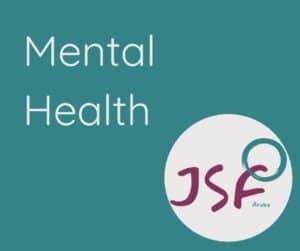Most people find talking about or dealing with mental health difficult. Yet in essence we do it every day. When you tell someone how you’re feeling, when you go for a walk to clear your head or relieve stress by playing a sport. When you complain about your colleague or mother-in-law to your friends, when you get a massage to get rid of the tension knots in your shoulders.
A lot of us use poor mental health and mental illness interchangeably. Yet they are different.
Mental Health

Mental health is how well (or poorly) we are doing emotionally, psychologically and socially. It affects how we feel and how we act. It’s part of how we relate to others and how we make choices. Mental health influences how we handle stress, trauma or unexpected situations. It is the basis for self-esteem, resilience, hope and how we contribute to society. Our mental health affects us physically, and can be influenced by our physical health.
Mental Illness
Mental illness is a diagnosed condition that significantly affects emotions, thoughts or interpersonal interactions. These conditions can cause distress, or stop us from functioning. The illness can be managed or perhaps even treated. But it cannot be controlled.
This is a very important distinction. Asking someone with a mental illness to “just get over it”, or to “stop crying already”. Asking them “what have you got to be depressed about?” or telling them, “there’s nothing to be afraid of, stop shaking” is like asking someone who’s lost their legs to get up and walk. Things like “just eat something already” or “stop getting distracted” are just as useless.
Even with prosthetics, one might choose to use a wheelchair at times, or go without, because the prosthetic may not fit or cause pain. To outsiders someone with prosthetics may look whole, but not be considered whole. Even if the one wearing the prosthetics feels whole. You can’t see if someone is on medication or in therapy for mental illness. We look whole, even if we aren’t. Even when we are whole, it does not mean we will stay that way.
Does it have to be both, or can it be either?
No, not everyone with poor mental health has a mental illness. And vice versa, a person with a mental illness can have good mental health.
Just because someone is mentally ill, does not mean they are not intelligent, capable of communicating or capable of making good decisions. If someone who has lost their legs feels depressed, people don’t find it strange. If he’s anxious to leave the house because people stare, most everyone can understand, or at least imagine that might happen. But no one assumes that he’s no longer capable of saying what he needs or wants or why.

